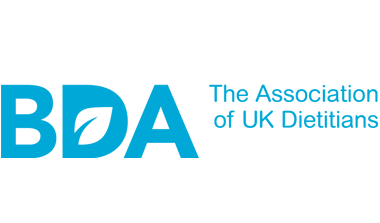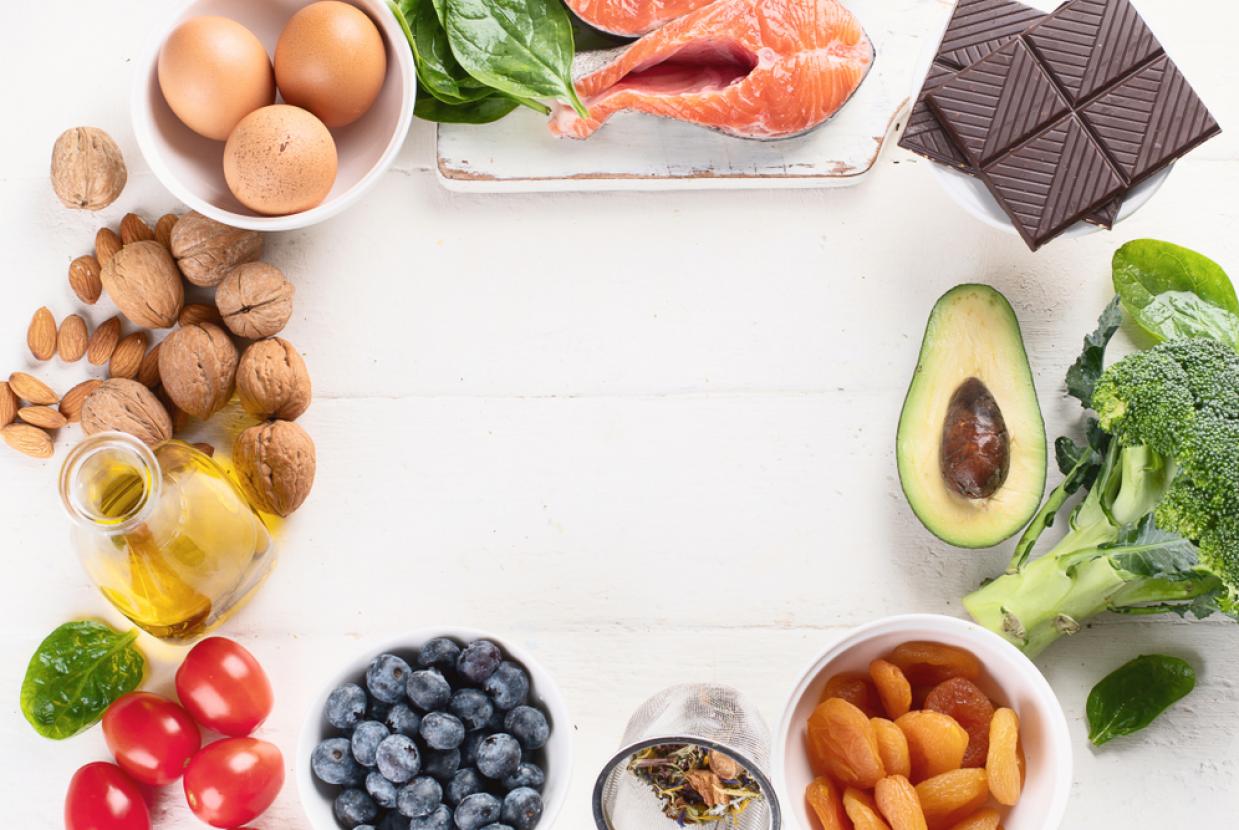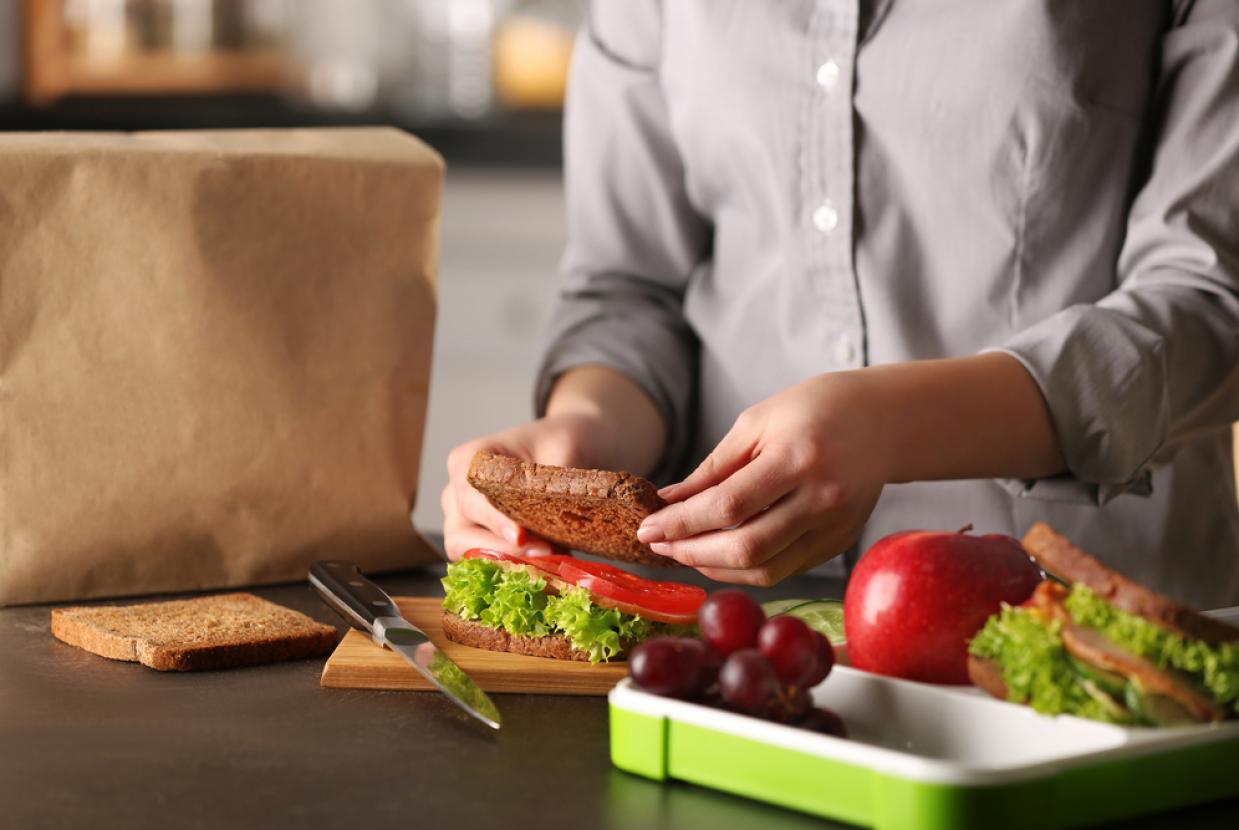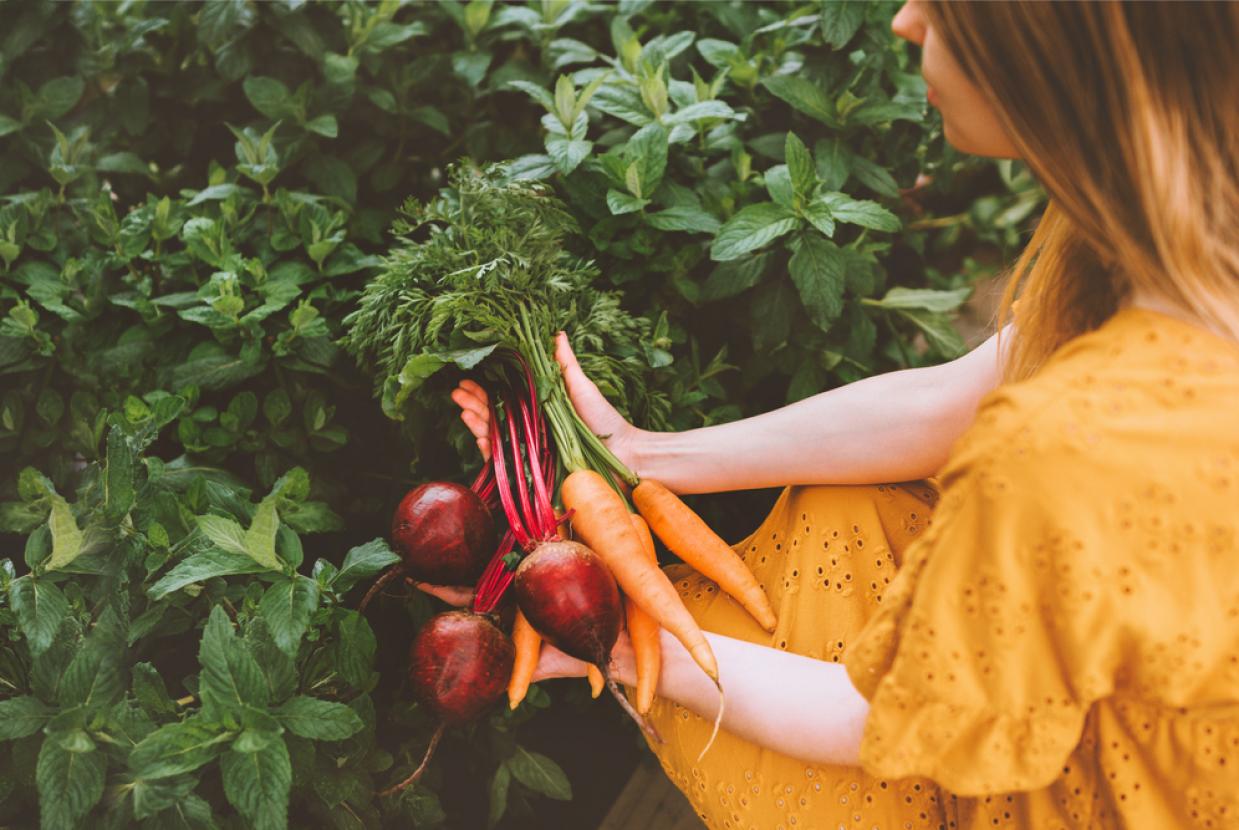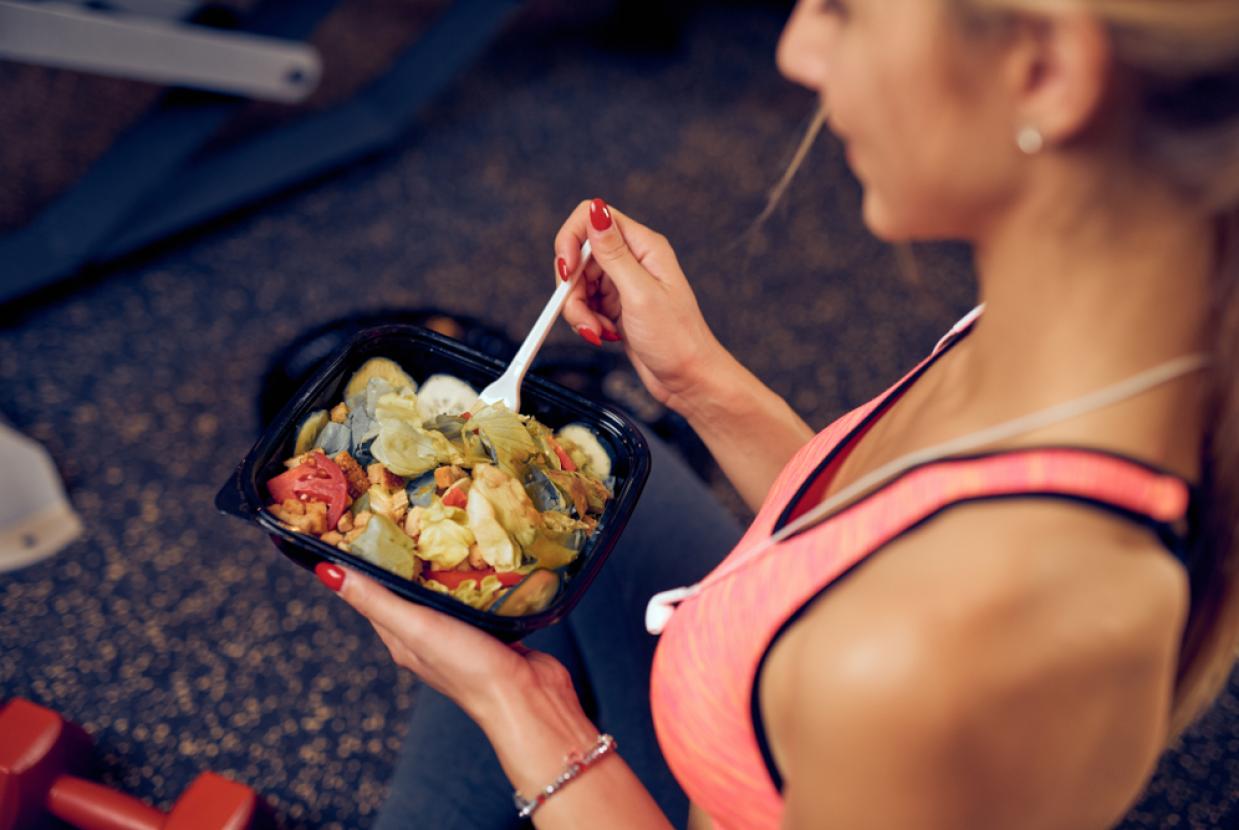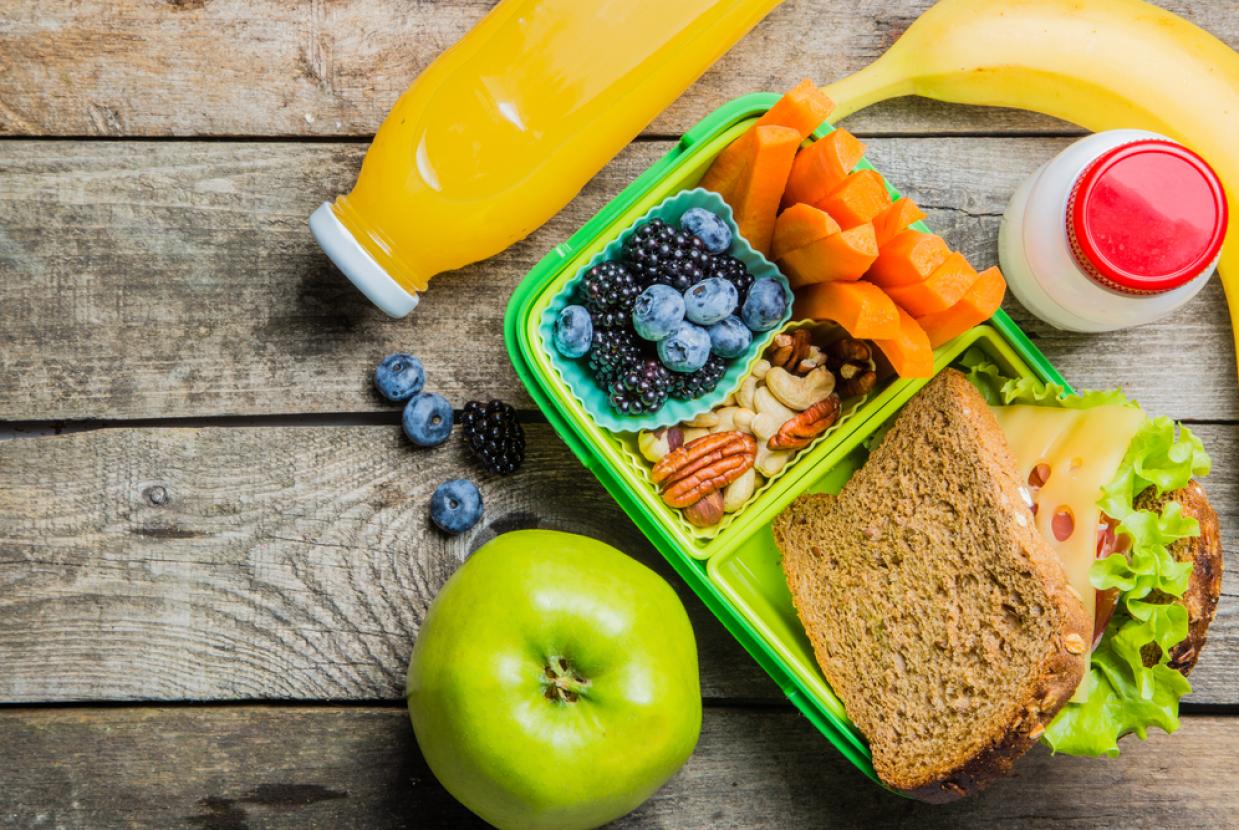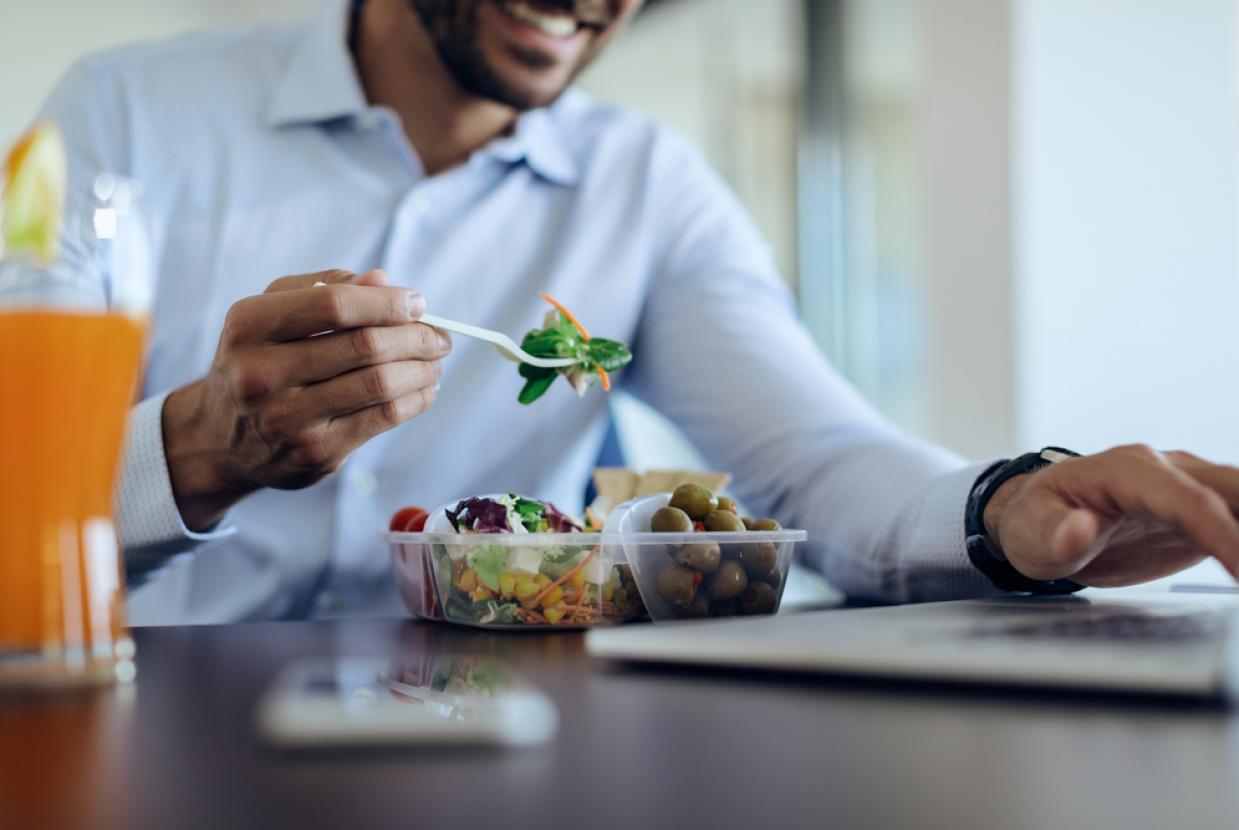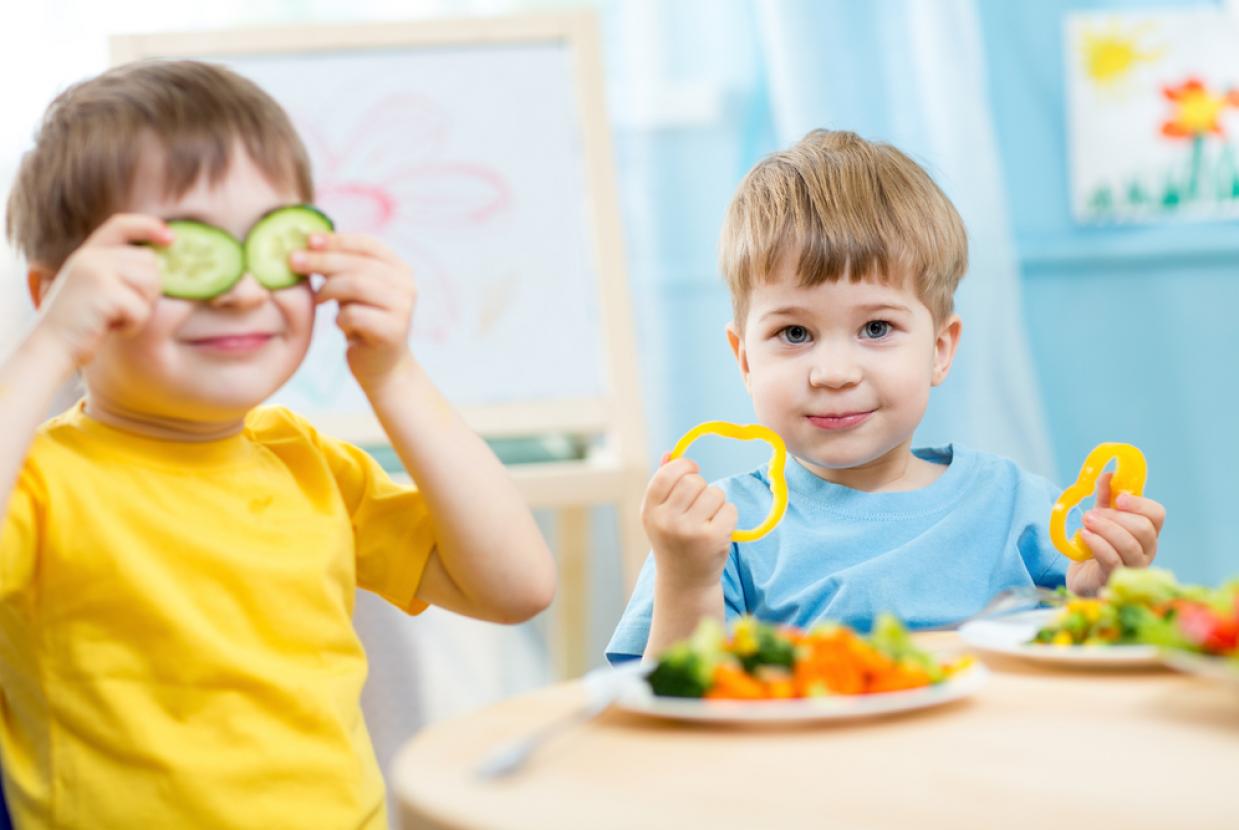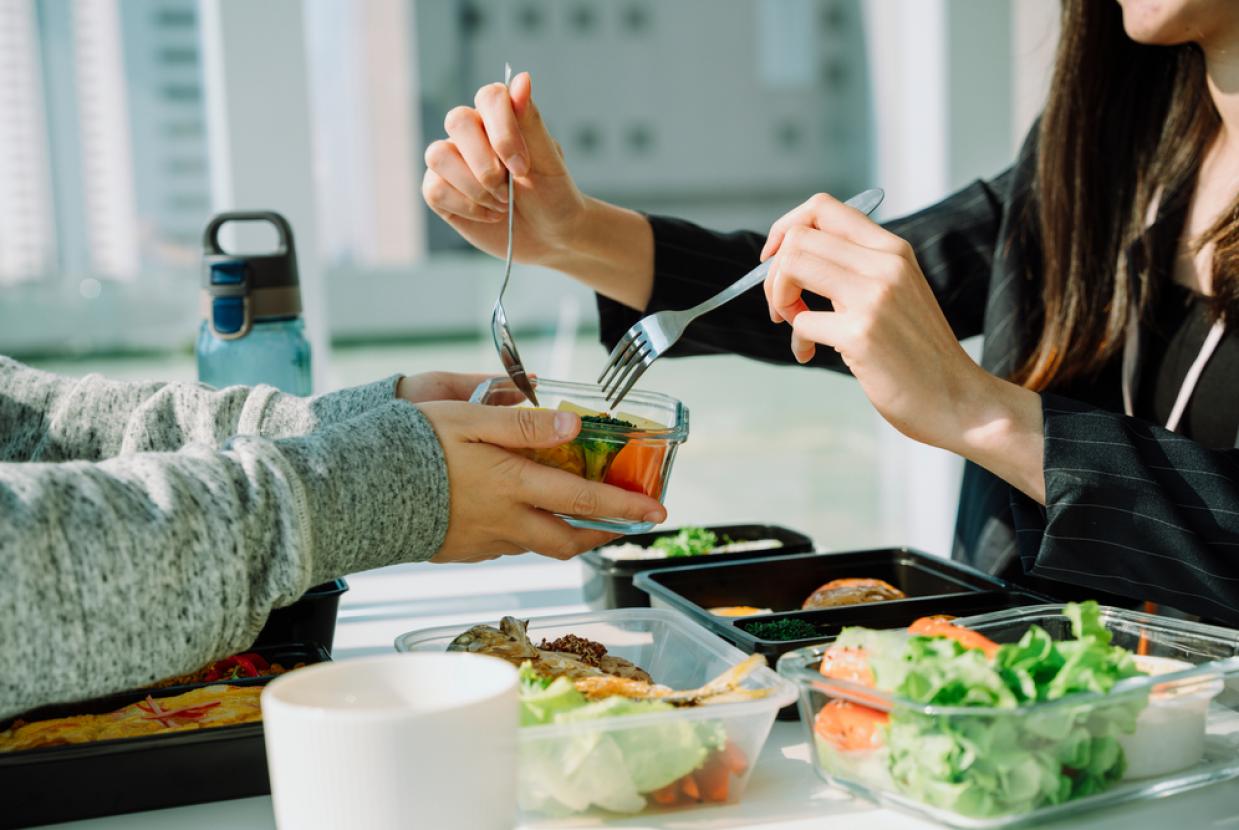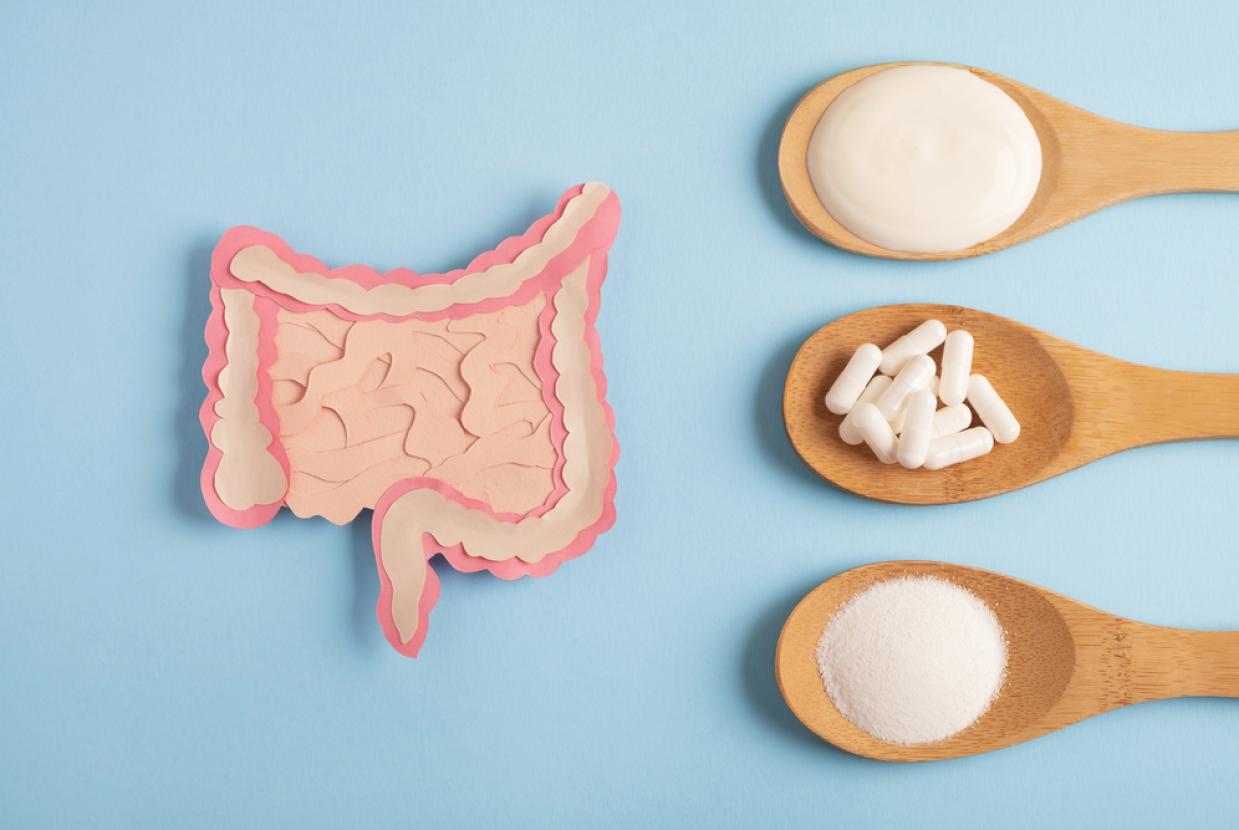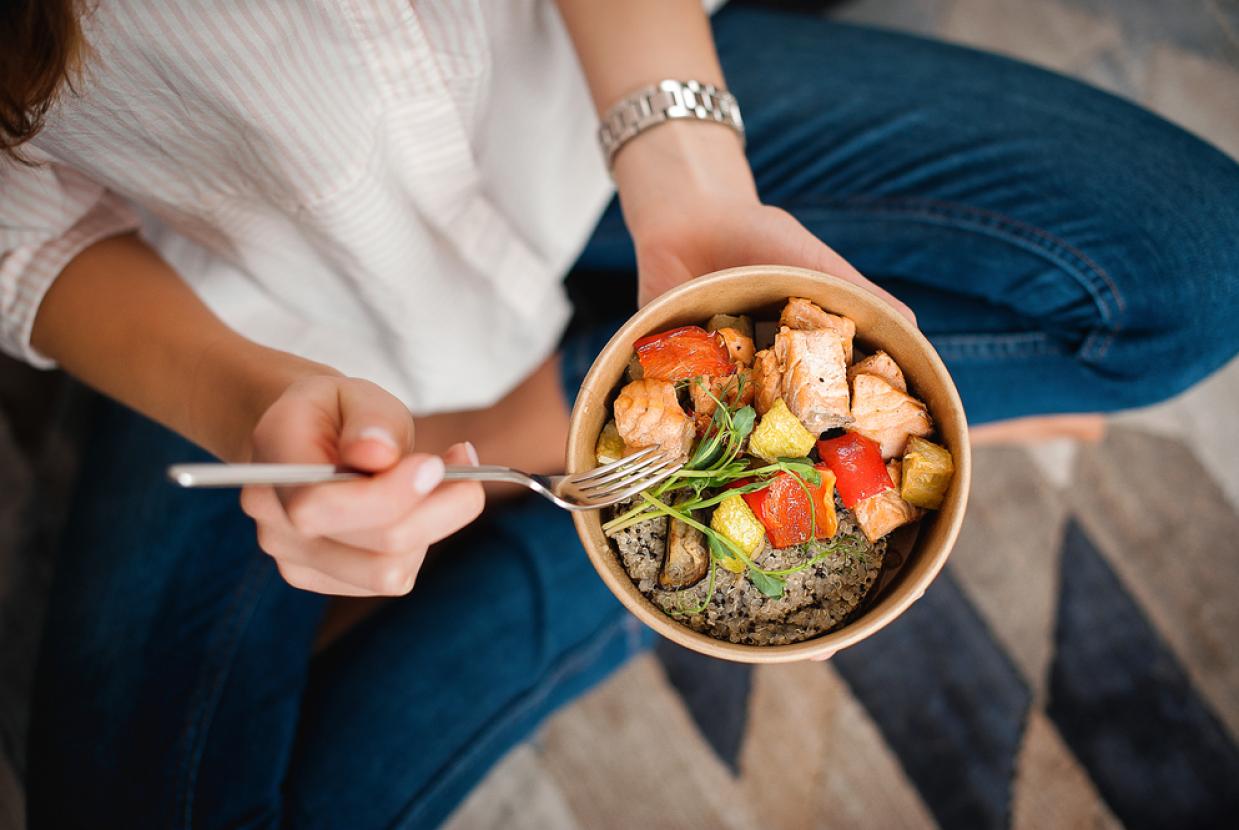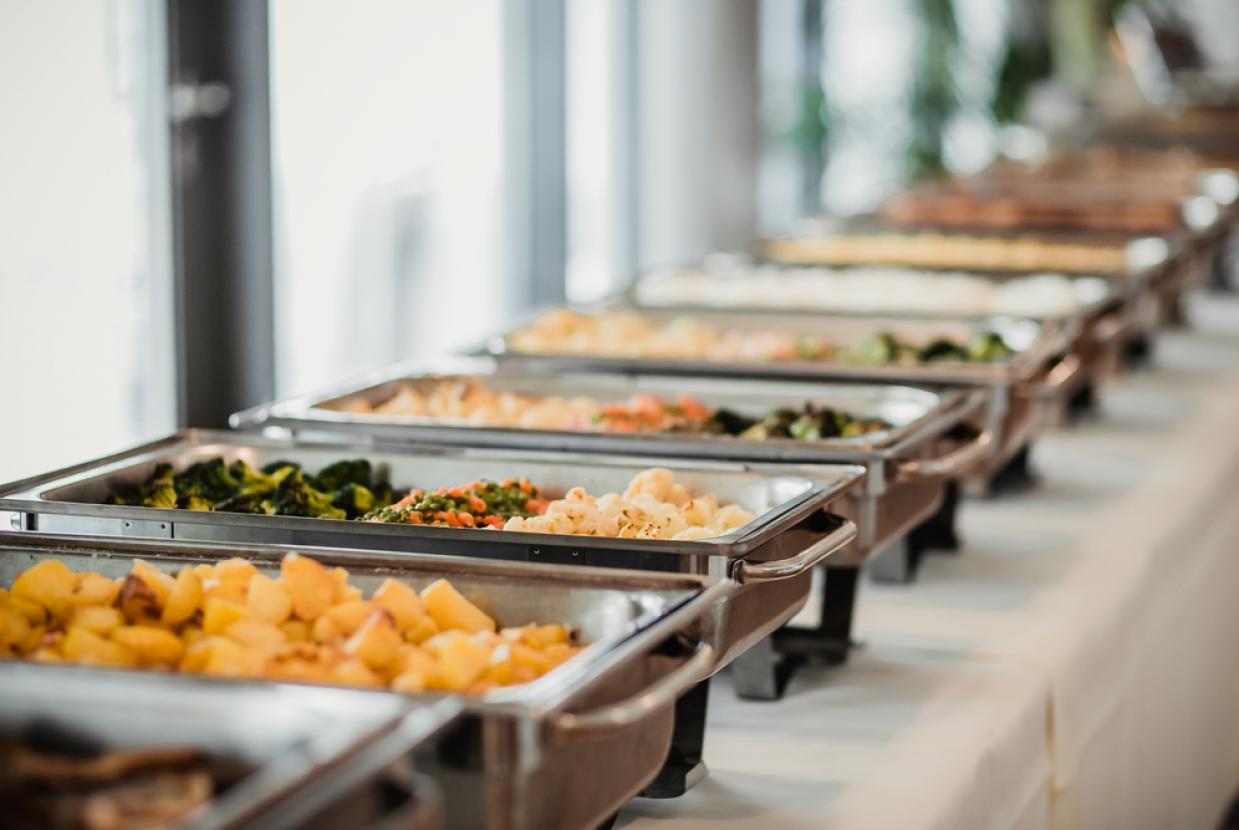How To Get 5-A-Day
There are many health benefits of eating more fruits and vegetables, so getting our ‘five-a-day’ is a good idea for everyone.
Why are fruits and vegetables so beneficial?
As well as tasting great, fruits and vegetables are incredibly versatile, packed with essential vitamins and minerals, a variety of phytochemicals (naturally occurring plant substances) and fibre that are vital for good health.
Many of these nutrients also act as powerful antioxidants, protecting the body from harmful free radicals (found in pollutants) that can cause disease.
Studies have shown that people who eat plenty of fruit and veg have a lower risk of developing many diseases, including high blood pressure, obesity, heart disease and stroke, and some cancers (including mouth, throat, stomach, bowel and lung cancers).
In fact, it has been estimated that diet is likely to contribute to the development of one-third of all cancers, and that eating a healthy, balanced diet, with more fruits and vegetables is the second most important cancer prevention strategy, after stopping smoking.
How much is a portion?
One portion is 80g or any of the following:
- one banana, orange, pear or apple or a similar sized fruit
- half a grapefruit or avocado
- a slice of large fruit such as melon or pineapple
- two satsumas, plums or similar sized fruit
- a handful of grapes
- two handfuls of blueberries or raspberries
- one heaped tablespoon of dried fruit, such as sultanas, currants or cranberries, or three heaped tablespoons of fruit salad (fresh/tinned in fruit juice).
- three heaped tablespoons of vegetables (raw, cooked, frozen or tinned)
- three heaped tablespoon of any ‘pulse’ – beans, peas or lentils (however much you eat, pulses only count as one of your five a-day)
- one cereal bowl of lettuce, watercress or spinach
There is evidence to show that for every portion of fruit and vegetables eaten there is greater protection against heart disease and strokes (by up to 30 per cent), and some cancers (by up to 20 per cent).
Other health benefits include a delay in the development of cataracts (cloudy lens of the eye) and age-related macular degeneration, reducing the symptoms of asthma, improving digestive health, better management of diabetes and the potential for improved bone health.
Fruits and vegetables also have the added bonus that they are naturally low in energy (calories) and high in fibre, and so could help you to maintain a healthier weight.
How much should you eat?
The World Health Organization and the Department of Health continue to recommend that we should all be aiming to eat at least five portions of a wide variety of fruit and vegetables a day – just over a third of the food we eat each day.
Children should also be encouraged to eat at least five different portions a day. Our likes and dislikes of foods are formed in the first few years of life, so children who eat a variety of fruit and vegetables are more likely to continue to eat them as teenagers and adults. There is no specific guidance on portion size for children, but a good guide is an amount that fits into the palm of a child’s hand.
What counts?
Fresh, frozen, dried and canned fruit and vegetables all count. Also, pulses can count for one of your five-a-day. Remember that potatoes, yam, plantain, and cassava do not contribute towards your five-a-day because they are starchy foods. But, sweet potatoes, parsnips and butternut squash do count!
Fruit/vegetable juices and smoothies
A glass (150ml) of unsweetened 100 per cent fruit, vegetable juice or smoothie also counts as one portion. However, no matter how much you drink (for example more than 150ml), or how many varieties of fruit juice, it will still only count as one of your portions per day because the juicing process removes most of the fibre from the fruit.
Crushing fruit into juice releases the sugars contained in the fruit. So, to reduce the impact on teeth, enjoy a small glass at mealtimes.
Five-a-day the easy way!
Try to eat one or two portions with each meal and make fruit or vegetables the first choice for a snack and it will be easy to eat at least five a day.
Sample day:
- Breakfast: A bowl of wholegrain breakfast cereal with a sliced banana and a glass of pure fruit juice.
- Mid-morning snack: Munch your favourite raw vegetable crudités – cherry tomatoes, button mushrooms, carrots batons or celery sticks.
- Lunch: Add a side salad, to your lunchtime sandwich and a small pack of dried raisins.
- Mid-afternoon snack: Ditch the biscuits for fresh melon or mango slices.
- Dinner: Indulge in a spicy chilli or hearty winter casserole packed full of seasonal vegetables.
What about supplements?
Don’t rely on supplements to get the vitamins and minerals your body needs unless you have been told to by a health professional, for example by a health visitor when you are planning a pregnancy. Supplements are not a substitute for a healthy diet and lifestyle.
A well-balanced diet containing plenty of fruits and vegetables is cheaper and more nutritious than taking supplements. It is also possible that certain supplement combinations can be damaging to the body. For more information, talk to your GP or another health professional like a dietitian.
Top tips to get your five-a-day
- Go for those in season: Opt for fresh produce as they are more likely to be locally grown, are value for money and often look and taste the best.
- Eat a rainbow: Variety is important. Different coloured fruits and vegetables contain their own combination of vitamins, minerals and fibre. So, to get the most benefit, try to eat one portion from each colour group.
- Cut down or avoid butter, cream or cheese sauces: Even though fruits and vegetables are low in calories, remember that their calorie content is determined by what you prepare them with.
- Be careful not to eat too many dried fruits: A 30g portion of dried fruits, like apricots, dates, raisins etc. counts towards your five-a-day. However, once fruit is dried it also becomes a concentrated source of sugar and calories. To minimise damage to teeth, keep to mealtimes and not as a between-meal snack.
- Check nutrition information on labels and look out for the ‘5-a-day’ logo: Vegetables contained in convenience foods such as ready-meals, pasta sauces and takeaway meals can contribute to your five-a-day. But, many of these foods may be high in added salt, sugar or fat. Check out the nutrition information to see whether you can get your five-a day, in a healthier way.
- Cut down on your meat portion sizes: Bulk up on vegetables and pulses by adding them to stews, curries and casseroles to get extra flavour, texture and plant-based nutrition.
- Treat your fruit and veggies right: Nutrients in fruit and vegetables can be easily destroyed during food preparation and by heat, so whenever possible eat them raw. When cooking vegetables, try steaming, microwaving, roasting or poaching rather than boiling, to keep the maximum amount of nutrients.
- Keep your freezer and cupboards well stocked: Keep a supply of frozen and/or canned vegetables and fruits at home. They are a convenient alternative to fresh varieties, stay fresher for longer and they all count towards your five-a-day.



